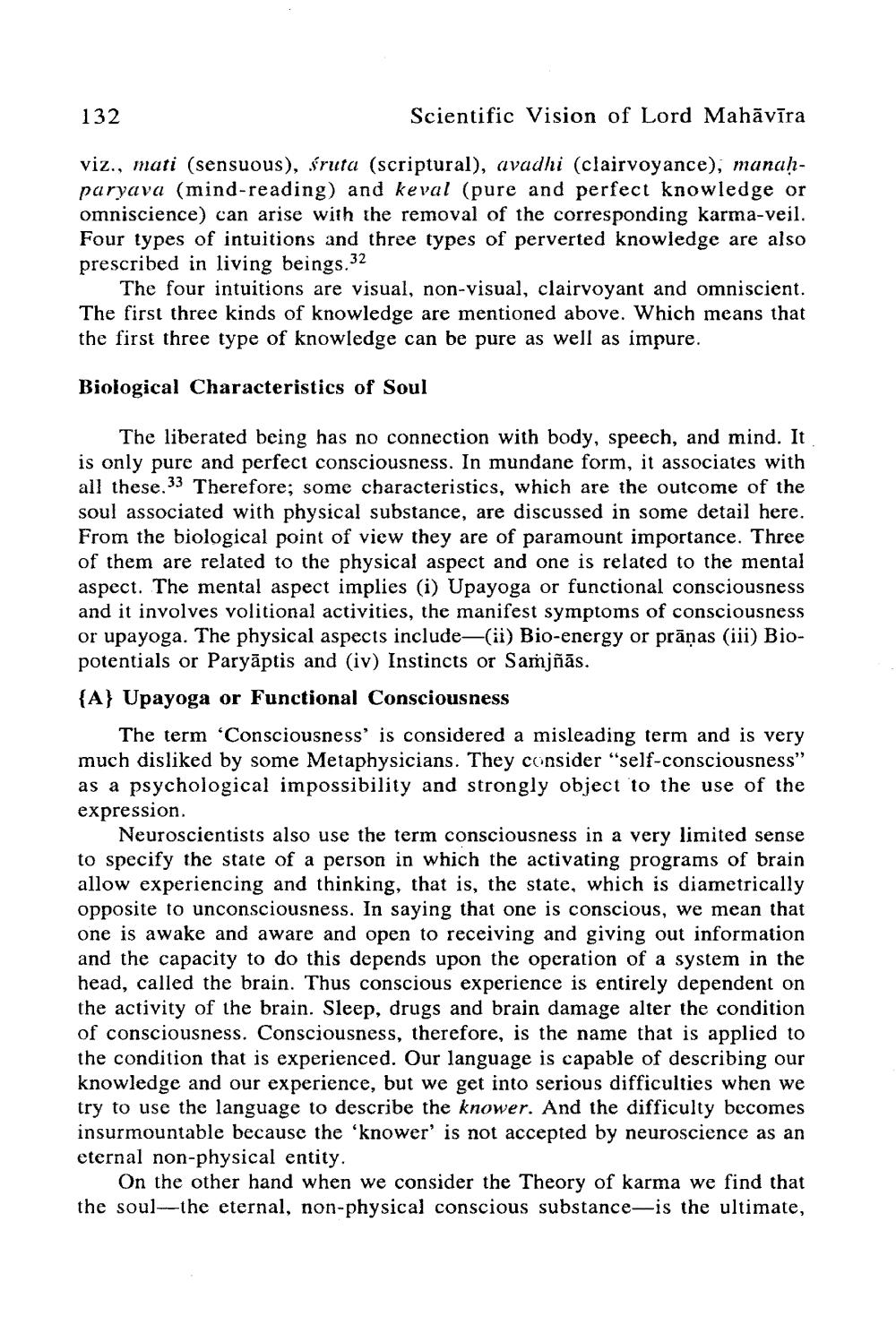________________
132
Scientific Vision of Lord Mahāvīra
viz., mati (sensuous), śruta (scriptural), avadhi (clairvoyance), manahparyava (mind-reading) and keval (pure and perfect knowledge or omniscience) can arise with the removal of the corresponding karma-veil. Four types of intuitions and three types of perverted knowledge are also prescribed in living beings.32
The four intuitions are visual, non-visual, clairvoyant and omniscient. The first three kinds of knowledge are mentioned above. Which means that the first three type of knowledge can be pure as well as impure.
Biological Characteristics of Soul
The liberated being has no connection with body, speech, and mind. It is only pure and perfect consciousness. In mundane form, it associates with all these 33 Therefore; some characteristics, which are the outcome of the soul associated with physical substance, are discussed in some detail here. From the biological point of view they are of paramount importance. Three of them are related to the physical aspect and one is related to the mental aspect. The mental aspect implies (i) Upayoga or functional consciousness and it involves volitional activities, the manifest symptoms of consciousness or upayoga. The physical aspects include-(i) Bio-energy or prānas (iii) Biopotentials or Paryāptis and (iv) Instincts or Samjñās. {A} Upayoga or Functional Consciousness
The term 'Consciousness' is considered a misleading term and is very much disliked by some Metaphysicians. They consider “self-consciousness" as a psychological impossibility and strongly object to the use of the expression
Neuroscientists also use the term consciousness in a very limited sense to specify the state of a person in which the activating programs of brain allow experiencing and thinking, that is, the state, which is diametrically opposite to unconsciousness. In saying that one is conscious, we mean that one is awake and aware and open to receiving and giving out information and the capacity to do this depends upon the operation of a system in the head, called the brain. Thus conscious experience is entirely dependent on the activity of the brain. Sleep, drugs and brain damage alter the condition of consciousness. Consciousness, therefore, is the name that is applied to the condition that is experienced. Our language is capable of describing our knowledge and our experience, but we get into serious difficulties when we try to use the language to describe the knower. And the difficulty becomes insurmountable because the 'knower' is not accepted by neuroscience as an eternal non-physical entity.
On the other hand when we consider the Theory of karma we find that the soul--the eternal, non-physical conscious substance—is the ultimate,




